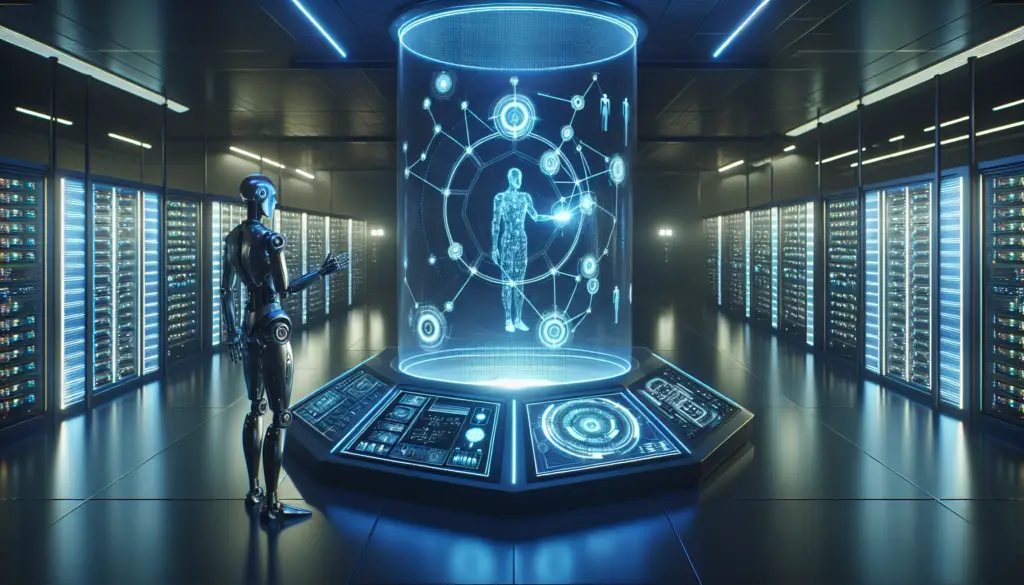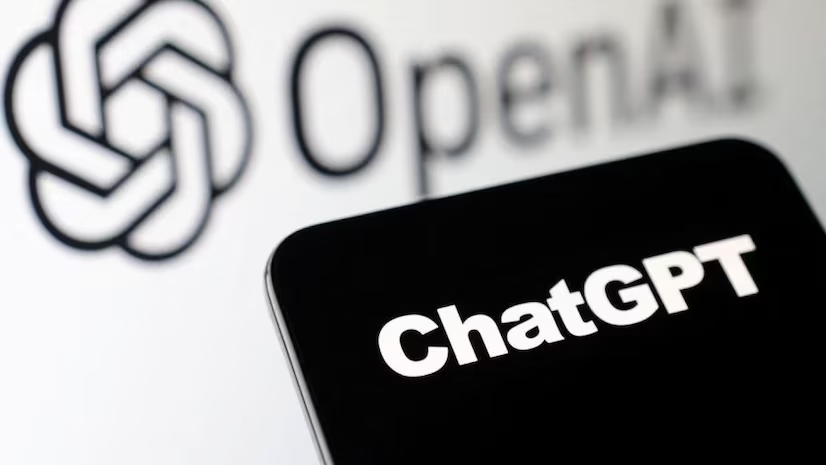
What is ChatGPT?
ChatGPT is an advanced AI chatbot developed by OpenAI. It utilizes the GPT (Generative Pre-trained Transformer) AI models, including the latest multimodal AI models GPT-4o and GPT-4o mini, to process text, image, and audio inputs. This powerful free tool can engage in a wide range of tasks, from holding conversations and generating text to creating images and analyzing data.
How ChatGPT works
OpenAI ChatGPT operates by attempting to understand user prompts and generating responses based on its training data. It uses a technique called Reinforcement Learning from Human Feedback (RLHF) to overcome limitations of previous models and align with human expectations.
The process involves:
- Breaking down input into tokens (words, subwords, or characters)
- Predicting the most likely sequence of tokens to form a coherent response
- Generating human-like text based on the context of the conversation
Can ChatGPT be wrong?
While ChatGPT is a powerful tool, it’s also important to note that it can make mistakes. The AI can produce incorrect or biased information, a phenomenon known as “hallucination” and OpenAI acknowledges this limitation, and users are advised to verify important information from reliable sources.
The evolution of AI chatbots
The journey of AI chatbots began in 1966 with ELIZA, created by Joseph Weizenbaum at MIT. ELIZA used pattern-matching and substitution methodology to simulate conversation, laying the foundation for future natural language systems. Over the decades, chatbots evolved from simple rule-based systems to more sophisticated AI-powered assistants.
Limitations
Some key points to consider:
- ChatGPT’s information may be outdated, as it doesn’t have real-time access to the internet.
- The AI struggles with precision, especially when given limited context.
- According to some reports, ChatGPT’s error rate is estimated at 7-8%, though this can vary depending on the task.
To mitigate these issues, users should provide clear context in their prompts and cross-reference important information with other reliable sources.
Key Insights about ChatGPT
ChatGPT, which stands for Chat Generative Pre-Trained Transformer, is an advanced AI chatbot developed by OpenAI. It utilizes natural language processing to understand and generate human-like responses to user queries. Since its launch on November 30, 2022, ChatGPT has rapidly gained popularity, reaching over one million users by December 4, 2022, and surpassing 100 million users by January 2023, making it the fastest-growing consumer application to date .
Is it available for free?
Both free and paid versions of ChatGPT are available. The free version, known as ChatGPT 3.5, provides access to the basic features of the AI chatbot. It is available in the form of a free download-able app. For users seeking enhanced capabilities, OpenAI offers a premium service called ChatGPT Plus, priced at $20 per month. This subscription grants users access to GPT-4, the latest and most advanced version of the language model.
What does ChatGPT stand for?
As mentioned earlier, ChatGPT stands for Chat Generative Pre-Trained Transformer. This name reflects the technology behind the AI:
- Chat: Indicates its primary function as a conversational AI
- Generative: Refers to its ability to generate new content
- Pre-Trained: Signifies that the model has been trained on vast amounts of data
- Transformer: Describes the underlying neural network architecture
You may also like:
- PS6: Expected Release Date, Price, Specs, and More
- Unveiling the Mysteries of Dr. Doom: Marvel’s Iconic Villain
- The Brilliant Healer’s New Life in the Shadows: Chapter 1 Overview
What is ChatGPT-4?
GPT-4 is the latest iteration of OpenAI’s language model, so it offers significant improvements over its predecessors. Key features of GPT-4 include:
- Multimodal capabilities: It can process both text and images, allowing users to interact with the AI using visual inputs.
- Enhanced creativity: GPT-4 excels at creative tasks such as music composition, scriptwriting, and technical writing.
- Improved contextual understanding: The model can handle more complex queries and maintain context over longer conversations.
- Multilingual support: GPT-4 is available in 50 languages, which makes it accessible to a global audience.
Conclusion
ChatGPT has a significant impact on the world of AI and communication. Its ability to understand and generate human-like text has opened up new possibilities in various fields, from content creation to problem-solving. The rapid growth of ChatGPT’s user base shows its potential to change how we interact with technology and access information.
As AI technology continues to evolve, it’s crucial to consider both the benefits and challenges it brings. While ChatGPT offers impressive capabilities, users should keep in mind its limitations, such as potential errors and biases. To make the most of this tool, it’s essential to use it responsibly, verify important information, and see it as a helpful assistant rather than a replacement for human expertise and critical thinking.
FAQs
Q: What exactly is ChatGPT, the AI chatbot everyone’s discussing?
ChatGPT is an AI-powered chatbot equipped with natural language processing (NLP) capabilities, enabling it to engage in human-like conversations and perform a variety of tasks. Moreover, this generative AI tool is adept at answering queries, as well as helping compose emails, essays, code, and more.
Q: Can you explain what the ChatGPT chatbot is?
ChatGPT is a chatbot powered by artificial intelligence (AI) that employs natural language processing to simulate conversational interactions with human-like dialog.
Q: Which AI chatbot is considered the most advanced globally?
Elomia is recognized as one of the world’s most advanced chatbots. It functions as a virtual therapist, offering support for individuals dealing with anxiety, depression, relationship issues, low self-esteem, loneliness, and other mental health concerns.
Q: Are there any AI chatbots available besides ChatGPT?
Yes, there are several competitors to ChatGPT, including Google Bard, Microsoft’s Bing Chat, Anthropic’s Claude, Character.AI, and Jasper AI. Additionally, numerous other free alternatives to ChatGPT can be found online.
